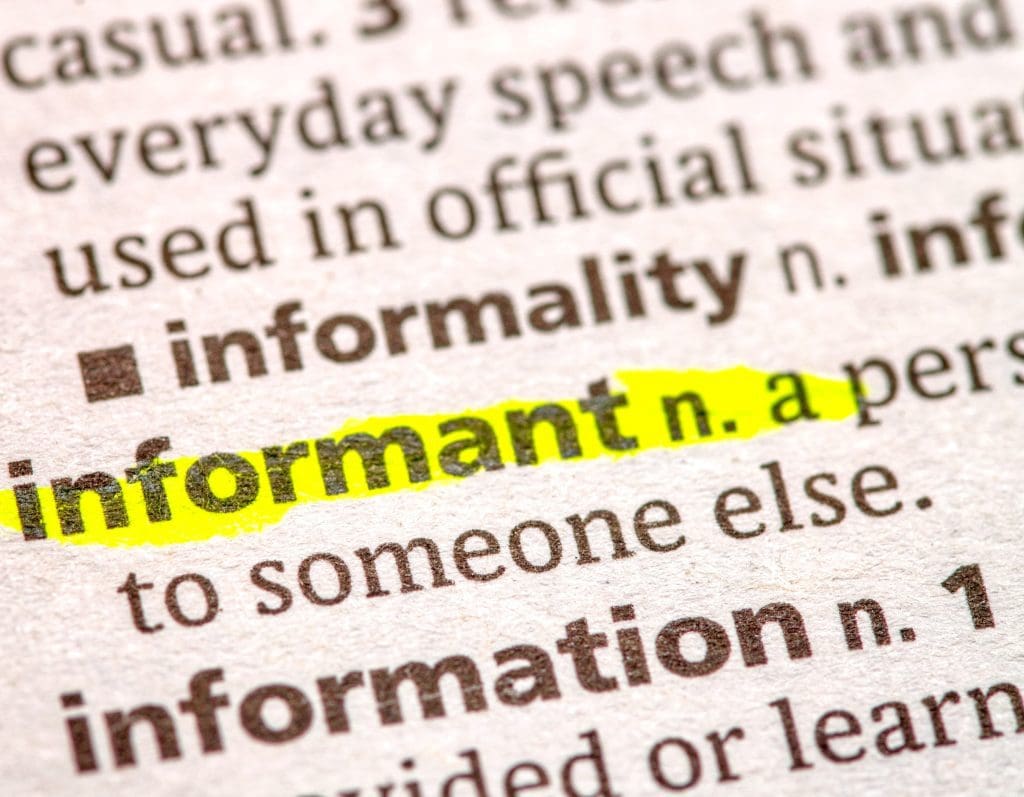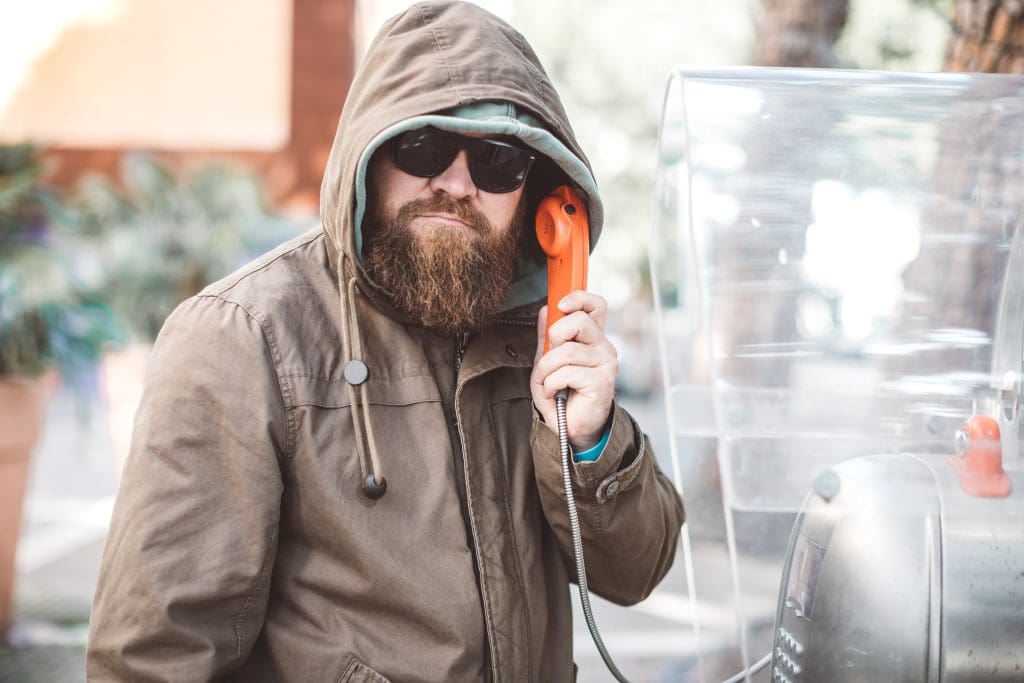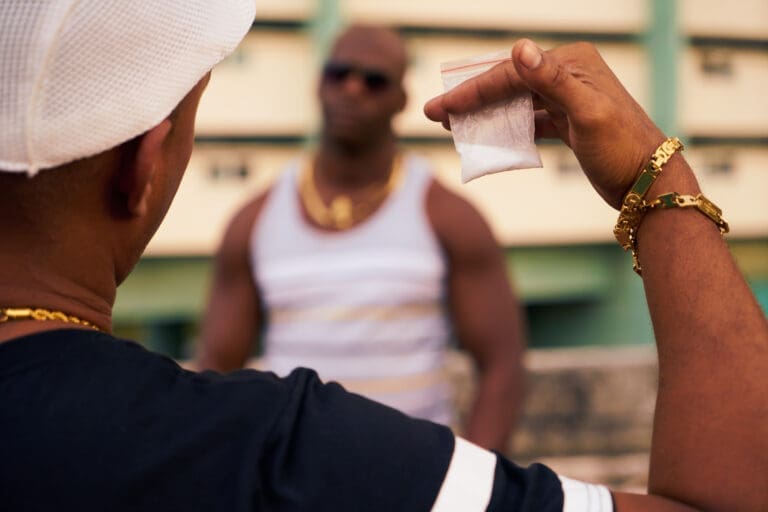By Kirk Tarman, Criminal Defense Attorney in San Bernardino County, California. Originally published in 2008 and reposted with permission from Crime, Justice and America magazine

Como estudiante de segundo año de Derecho en 1988, asistí a una conferencia de abogados defensores criminalistas en San Francisco, donde la mitad del día se dedicó a los procedimientos de descubrimiento para la divulgación de informantes. Al discutir el tema, cada abogado prominente anunció con orgullo que nunca representaría a un informante, como si representar a un acusado que coopera fuera una traición a la profesión al ayudar e instigar al gobierno a hacer su trabajo. ¿Por qué deberíamos ayudar al gobierno que persigue a nuestros clientes, nos oculta pruebas y no conoce el significado de la verdad y la justicia? Por no hablar de sufrir el estigma de ser etiquetado como "abogado chivato".

Over the past ten years, defending a cooperating defendant has undergone a dramatic transformation for criminal defense attorneys. The previously accepted “duck and hide” method, once the decision was made by the client to help the government, is now considered ineffective assistance of counsel (thereby subjecting us to discipline) in light of the Ninth Circuit’s holding in the United States of America v. David Leonti (1) : “The cooperation time period between a defendant and the government is a “critical stage” of the criminal process and has become a central part of criminal procedure (2).” In my opinion, the Leonti case as well as the State Bar Act –specifically Business & Professions Code §§ 6068(e) and (h) — do not permit us to do as we all once did and still desire to do: Hear no evil, speak no evil and see no evil.
Judge Hawkins wrote in his opinion in the Leonti case, “[T]he advent of the sentencing guidelines now makes it mandatory that every defendant be advised in the early stage that cooperation with the government may be the only course that can substantially reduce the sentence that will ultimately be imposed (3).” In federal cases, every criminal defense lawyer should know the importance of a 5K1.1 letter from the government: “[u]pon motion of the government stating that the defendant has provided substantial assistance in the investigation or prosecution of another person who has committed an offense, the court may depart from the [mandatory minimum] guidelines (4).”
Ethically, we as attorneys are “[n]ever to reject, for any consideration personal to himself or herself, the cause of the defenseless or the oppressed (5).” As much as we may dislike representing a confidential informant who decides to turn in the middle of our representation, it is our duty to set aside this personal consideration and continue that representation. In addition to our ethical obligations, one district court has held that it may be ineffective assistance of counsel (again, subjecting us to discipline) if we fail to advise a defendant of the importance of cooperating with the government early in the case (6). Once cooperation has been agreed upon, failing to help our clients facilitate the process (communicating with federal agents and the prosecutors regarding the appropriate course to maximize our client’s chances for providing substantial assistance to the government) may also be incompetence.
Al sostener que la garantía de la Sexta Enmienda de contar con un abogado competente es aplicable en este caso, el tribunal consideró que se trata de una fase crítica del procedimiento para los acusados de delitos federales, lo que impone a los abogados defensores penales una obligación que preferirían no aceptar.

Further, informants have always been, and continue to be, well protected against their actions being disclosed to counsel representing the informant’s target. In U.S. v. Abonce-Barrera, 257 F. 3d. 959 (9th Cir. 2001), the court held that the defense is only entitled to information about other cases the informant worked on if it can prove that the information is “material”. Following its prior holding in United States v. Flores, 540 F. 2d 432 (9th Cir. 1976), the Abonce-Barrera court reiterated that a request “to disclose the names and numbers of the prior cases in which the informant … had testified on behalf of the government” was not material based only on a “hunch” that the informant may have tampered with evidence in other cases (7).
Así pues, por mucho que nos avergüence o no nos guste seguir representando a un cliente que se ha convertido en informante, el abogado corre un gran riesgo de ser declarado incompetente si no sigue ayudando a sus clientes durante el proceso de cooperación. Y aunque puedan estar arriesgando su seguridad personal mientras están detenidos o una vez puestos en libertad, los acusados que cooperan pueden consolarse sabiendo que sus esfuerzos de cooperación van a ser celosamente protegidos por su abogado y, en la mayoría de los casos, de la divulgación por parte de los tribunales.
- U.S.A. v. David Leonti,326 F.3d 1111 (9th Cir. 2003.)
- (Ibid)
- (Ibid)
- 5K1.1 of the Sentencing Guidelines
- B&P § 6068(h).
- U.S.A. contra Fernández, 2000 WL 534449(S.D.N.Y.)
- See U.S.A. v. Flores, 540 F. 2d. 432, 437-438. (9th Cir. 1976)








